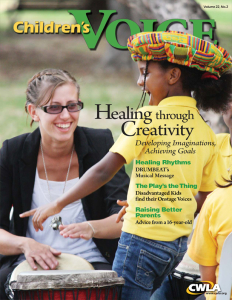Featured Article: This article is the first in a series by writer Michael Wriston.
Several years ago, when my oldest son (who is now a medical doctor) had to go to court for a speeding ticket he’d gotten, I asked him if he would give some thought to the advice he would offer parents–based on his own experience or that of his friends–that he thought might be useful to them.
He happily did so, and the next morning, while we were waiting in court, I interviewed him. Below, I’ve recorded what he said. I thought that his perspective was profound; it reinforced once again, in my mind, how much we can all learn from our children if we’re willing to ask and to listen. I believe that even a difficult child (and, in all honesty, my son Cooper was not terribly difficult) knows what good parenting is, and can see the mistakes that parents make, even with the best of intentions. Like the rest of us, although they will test the “rules,” they mostly want respect, (reasonable) boundaries, and the opportunity to make their own decisions and learn from their own mistakes. Experience, for better and worse, is still the best teacher. The wisest of parents knows this and allows their child to make as many of their own decisions as possible; then, we can help them to celebrate the things that turn out well and learn from the things that do not.
- Don’t be a hypocrite. Don’t preach one thing, then do another.
- Don’t pamper us so much. We’ll grow up thinking that the world owes us something.
- Don’t be inconsistent about standards and discipline. Don’t threaten to do something (reasonable), and then not do it. Don’t let us get away with something one day, then criticize us for it the next.
- Don’t treat us as though we’re younger or less responsible than we are. Steadily increase privileges and responsibilities as we get older. Don’t deny us opportunities because we’re not “responsible” enough without giving us adequate opportunities to prove our responsibility. Remember the rule of thumb that while teenagers think we’re about two years older than we are, most parents treat us as if we were two years younger.
- Don’t gang up on us. It only takes one parent to discipline/ scold/punish a teenager. Don’t let one parent always be the “bad guy.”
- Be a good role model. Demonstrate what you think is right–don’t just talk about it.
- Don’t compare or contrast siblings. This can create hard feelings for everyone; we each have our strengths and weaknesses.
- No name-calling or labeling. Calling us things like “stupid” or “irresponsible” is hurtful and counterproductive.
- Forgive and forget. Don’t keep bringing up something that happened in the past.
- Stand by us, even when we’ve screwed up. After all, parents make mistakes, too.
- Keep your promises. If you don’t keep your commitments to us, why should we keep our commitments to you?
- Let us make our own (non-fatal) mistakes. Then offer to help us figure out what went wrong.
- Be reasonable and consistent with discipline. Don’t take away what’s most important to us just because you’re upset.
- When there are problems, take the first step and reach out to us. Remember which one of us is supposed to be the most mature.
Michael J. Wriston is founder and president of The Competitive Edge, a consulting firm dedicated to optimizing the potential of all people at all levels (individual, team, and organizational). He is a former human resources executive, adjunct professor (at both Virginia Commonwealth University and the University or Richmond) and long-time (youth) soccer coach. He is also the father of four adventuresome, compassionate and surprisingly focused sons, and the author of a recently completed manuscript on the art and science of nurturing talent, “25 Keys for Unlocking Your Childrens Potential.”
Other Featured Articles in this Issue
The Play’s the Thing
Disadvantaged kids find their onstage voices
Raising Better Parents
Advice from a 16-year-old
Healing Rhythms
DRUMBEAT’s musical message helps youth in Australia and beyond
Departments
• On the Road with FMC
Climb for Foster Youth
• National Newswire
Are You Ready for Health Care Enrollment?
• Spotlight On
Let Love Define Family
• Exceptional Children
I Choose to be Optimistic
• Working with PRIDE
Adapting the Integrity of the PRIDE Model of Practice to meet Agency Strengths and Needs
• Down to Earth Dad
Hear, Hear, Head Start!
• News from the Hill

